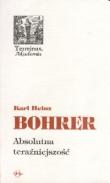
|
The Bible » » The New Testament Seven Mistakes of the Messiah One day the Jesus of the Gospels said to his disciples, „Truly, say to you, in the new world, when the Son of man [Jesus] shall sit on his glorious throne, you who have followed me will also sit on twelve thrones, judging the twelve tribes of Israel" (Matthew 19:28, Revised Standard Version). Later on, during his farewell discourse (Luke 22:24-38) at the Last Supper, Jesus said to the twelve apostles, „I bestow upon you a kingdom, just as My Father bestowed one upon Me, so that you may eat and drink at My table in My kingdom, and sit on thrones judging the twelve tribes of Israel" (Luke 22:29-30, New King James Version). In these three verses we find seven, mistakes of Jesus the Messiah. 1. Jesus mistakenly believed that God was his Father (Luke 22:29), or, as he said elsewhere, Almighty Abba (Mark 14:36). „Abba" is a toddler's expression of intimacy with its father, like „daddy." But when we consider the pointlessness of a violent universe, plus parasites causing serious diseases in man and beast, plus the pain inflicted on sensitive creatures by Mother Nature, we can but conclude that there is no Almighty Abba. See my "Almighty Abba," The American Rationalist, Volume 50 (No. 1, January-February 2004), pp. 4-5. 2. Jesus mistakenly believed that his imaginary Father-God has divided history into two imaginary ages/worlds, the imaginary present evil age/world under the imaginary control of an imaginary Satan, and an imaginary future perfect age/world under the imaginary control of an imaginary Almighty Abba. 3. Jesus mistakenly believed that his imaginary Almighty Abba would transformhim into the imaginary supernatural Son-of-Man Messiah, an angel in the form of a man. The Son of Man is a mythological figure, if there ever was one. He comes straight out of such red-hot apocalyptic passages as Daniel 7:13-14 and 1 Enoch 46:1-6; 69:27 (1 Enoch is a book of the Pseudepigrapha of the Old Testament). 4. Jesus mistakenly believed that his imaginary Father-God had appointed him to be the imaginary king of all peoples in the imaginary new age/world which was about to come. As king, he will sit on his imaginary glorious throne, judging all nations (see also Matthew 25:31-46; 26:63-64; Mark 14:61-62). 5. Jesus mistakenly believed that his imaginary Almighty Abba had authorized him (Jesus) as the imaginary Son-of-Man Messiah to appoint his twelve apostles to assist him in his glorious reign. Jesus will sit on his imaginary throne, surrounded by the twelve apostles, who will be twelve imaginary princes, sitting on twelve imaginary thrones, judging/ruling the twelve tribes of Israel. As the apostles proclaimed the Kingdom of God to Israel (Matthew 10:6), so shall they judge Israel on the basis of whether Israel has accepted or rejected the good news. 6. Jesus mistakenly believed in the imaginary messianic banquet in the imaginary rapidly approaching kingdom, where the apostles will sit at Jesus' imaginary table eating and drinking with him, as foreshadowed by the Last Supper. What glory, honor, and joy to partake with Jesus of the messianic meal. That has to be the ultimate blessing, the highest happiness. We might call this imaginary messianic banquet a fool's paradise: an illusory happiness, an idle fancy, a figment of Jesus' overheated endtime imagination. 7. Jesus mistakenly believed that the twelve tribes of Israel were the favorite tribes, the chosen people, of his imaginary Almighty Abba, a partial God who plays favorites by selecting these twelve tribes from out of all the tribes in all the world to be his chosen people, „the apple of his eye" (Zechariah 2:8). How much better off the world would have been if Jesus had not embraced chosenpeopleism but had instead declared that no people ever was or ever will be the chosen people of Almighty Abba or of any other deity. For more on chosenpeopleism see my The Seven Mighty Blows to Traditional Beliefs (Gordo, AL: The Flatwoods Free Press, Second Edition, 1995), pp. 186-188. Conclusion: Three verses. Seven mistakes: Almighty Abba; two ages/worlds; Son-of-Man Messiah; Son of Man judging/ruling; Son of Man appointing twelve apostles to judge/rule; messianic banquet; and chosen peopleism. Seven far-fetched, incredible notions. * Published in the 2004 May/June issue of The American Rationalist ©
« The New Testament (Published: 26-05-2004 )
page 3426 |
|||||||||||||||||||||||||||||||||||||||||||||||||||||||||||||||||||||
| [ Cooperation ] [ Advertise ] [ Map of the site ] [ F.A.Q. ] [ Store ] [ Sign up ] [ Contact ] The Rationalist © Copyright 2000-2018 (English section of Polish Racjonalista.pl) | ||


